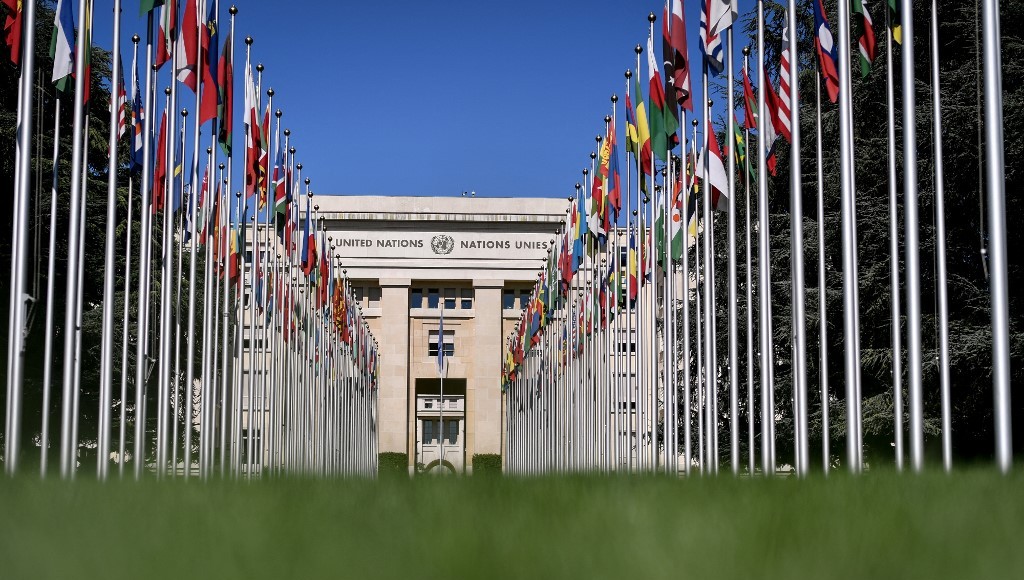The United Nations Human Rights Committee has called on Turkey to release a teacher who was arrested in 2018 over alleged links to a faith-based group and pay her damages since the arrest violated her rights under several articles of the UN’s International Covenant on Civil and Political Rights, the Bold Medya news website reported.
Mukadder Alakuş, who was taken into police custody on Sept. 4, 2018 due to her alleged links to the Gülen movement and was held in detention for a day without food, water or medication, was arrested and sent to a prison in Eskişehir province the following day.
The Turkish government accuses the Gülen movement of masterminding a coup attempt on July 15, 2016 and labels it a “terrorist organization,” although the movement strongly denies involvement in the coup attempt or any terrorist activity.
In late December of 2018, a local court sentenced Alakuş to seven years, six months of imprisonment on charges of membership in a terrorist organization, based on the fact that she had deposited money in accounts at the now-closed Islamic lender Bank Asya, which was affiliated with the Gülen movement, and downloaded the ByLock application on her phone and attended a peaceful rally.
ByLock, once widely available online, has been considered a secret tool of communication among supporters of the Gülen movement since a coup attempt that took place in July 2016, despite the lack of any evidence that ByLock messages were related to the abortive putsch.
Although Alakuş appealed the sentence at the İzmir Regional Court of Justice and then the Supreme Court of Appeals, both courts upheld the first instance decision on March 22, 2019 and Feb. 11, 2020, respectively.
On Nov. 15 the committee released its decision concerning Alakuş’s application, which was submitted in late 2019.
The committee said it found rights violations under articles 9 (1), 10 and 14 (3) (b), (d) and (e) and 15 of the covenant in the case of Alakuş, a teacher suffering from a series of health problems including spondylarthritis, psoriatic arthritis, gallstones, dental problems, chronic asthma and bronchitis and has undergone operations on her meniscus.
The committee said it considered that President Recep Tayyip Erdoğan’s ruling Justice and Development Party (AKP) failed to demonstrate that the teacher’s detention met the criteria of “reasonableness and necessity.”
It added that the mere use or download of a means of encrypted communication or a bank account cannot indicate, in itself, evidence of membership in an illegal armed organization, unless supported by other evidence.
Noting Alakuş’s allegations that she was not provided with food, water or medication while in police custody, was detained in an overcrowded cell in Eskişehir Prison and slept on a mattress on the floor, lacking a medically recommended diet, hot water and accessible toilets, the committee concluded that several minimum requirements were not met during her detention and subsequent arrest.
“In accordance with article 2 (3) (a) of the Covenant, the State party is under an obligation to provide the author with an effective remedy. … Accordingly, the State party is obligated, inter alia, to release the author and to provide her with adequate compensation for the violations suffered,” the committee said, adding that the AKP was also under an obligation to take all necessary steps to prevent the occurrence of similar violations in the future.
“Bearing in mind that … the State party has recognized the competence of the Committee to determine whether there has been a violation of the Covenant … the Committee wishes to receive from the State party, within 180 days, information about the measures taken to give effect to the Committee’s Views,” the committee further said.
Dr. Gökhan Güneş, a legal expert and human rights activist, on Sunday commented on the development in a series of tweets on social media, saying that the committee’s decision, which directly concerns current proceedings in Turkey, was “historic.”
BİRLEŞMİŞ MİLLETLER İNSAN HAKLARI KOMİTESİNDEN TARİHİ KARAR
BM İnsan Hakları Komitesi, örgüt üyeliği suçlaması ile tutuklanan ve 7 yıl 6 ay ceza alan bir başvurucunun dosyasını incelemiş ve güncel yargılamaları da doğrudan ilgilendiren tarihi nitelikte bir karara imza atmıştır.
— Dr. Gökhan Güneş (@GkhanGnes8) November 20, 2022
Güneş explained that it was “the most important decision ever made” regarding the merits of such a case.
He added that it was also important that the committee said, in response to the AKP’s submission that the communication should be considered inadmissible due to the non-exhaustion of domestic remedies, as Alakuş’s application to the Constitutional Court was still pending, that it found the AKP hadn’t shown that the application would have been effective, in practice.
President Erdoğan has been targeting followers of the Gülen movement, inspired by Turkish Muslim cleric Fethullah Gülen, since the corruption investigations of Dec. 17-25, 2013, which implicated then-prime minister Erdoğan, his family members and his inner circle.
Dismissing the investigations as a Gülenist coup and conspiracy against his government, Erdoğan designated the movement as a terrorist organization and began to target its members. Erdoğan intensified the crackdown on the movement following the coup attempt.
